Everywhere I look, I see books and articles extolling praises for the Mediterranean diet. It has been touted as a means to reduce heart disease and cancer, as well as enhance cognition and increase longevity.
However, you may be wondering whether it can fit into your lifestyle, with your food sensitivities and IBS.
Does the Mediterranean diet improve GI symptoms? Can it be followed while on the low-FODMAP diet?
I am excited to bring this topic to my blog, to answer all these important questions.
For you as well as for me 🙂
Mediterranean Diet Basics:
The Mediterranean diet is based on the way of eating enjoyed in parts of the Mediterranean Basin.
The diet focuses on ‘concepts’, rather than delegating portion sizes or specific foods. It is not strictly defined, and has flexibility.
The dietary concepts involve incorporating ‘healthy’ fats, increasing plant-based proteins and fish, minimizing animal products, adding nuts and olives, concentrating on whole grains, and reducing processed foods and sugar.
Many studies have suggested that following this diet and pattern of living may be linked to overall well-being. And as a bonus, it could improve your GI symptoms!
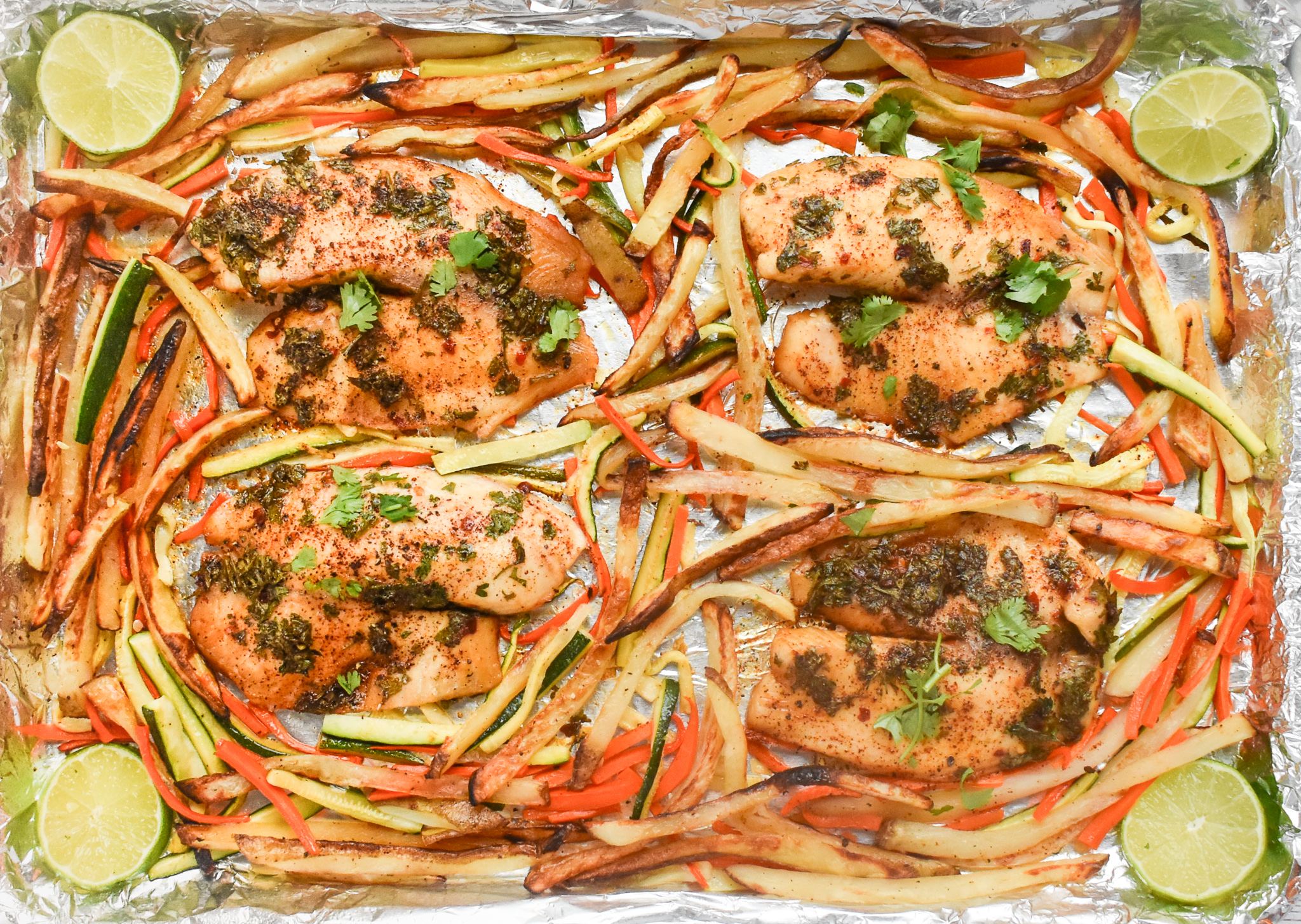
Low-FODMAP One-Pan Chili and Lime Tilapia
Benefits of the Mediterranean Diet:
There are many potential benefits of the Mediterranean diet, including the following:
- Lowering risk of heart (cardiovascular) disease
- Maintaining body weight
- Minimizing fluctuations in blood sugar, insulin resistance and diabetes
- Decreasing cholesterol and improving blood pressure
- Enhancing the gut microbiome
- Reducing certain cancers
- Lessening cognitive decline
- Increasing longevity (live longer)
Ways the Mediterranean Diet Works:
How does a diet achieve all that (you may be asking)?
Well, there are a lot of interesting ways.
Changes in our fat intake, to optimize ‘good’ fats, while reducing intake of fats that are linked to hardening of the arteries, inflammation, and heart disease, reduces the risk of cardiovascular events.
Reducing refined sugars leads to improved insulin secretion, and blood sugar control. This can decrease diabetes and other disorders of metabolism.
Increasing dietary antioxidants and omega-3 fats contributes to good brain function and lower cancer risk.
Limiting sodium intake has positive benefits to blood pressure control, body water balance, and kidney function.
Lastly, encouraging fiber intake through fruits, vegetables, and whole grains leads to improved gut function, and a varied intestinal microbiome. This can also enhance immunity and mood.
As you see, modifying your protein, fat and carbohydrate intake can lead to a ripple effect in many systems of your body. We really ‘are what we eat’!

Low-FODMAP Balsamic Grilled Vegetables
The Mediterranean Diet and the Low-FODMAP Diet:
Many studies have shown good impact from the Mediterranean diet. And we all know the benefits of low-FODMAP. So combining the two may result in your overall health improving, alongside your IBS symptoms.
Very few research studies have specifically assessed the combination of these two eating plans together. However, I want to reassure you that it is definitely feasible.
There are NUMEROUS low-FODMAP options that fit into the Mediterranean plan.
Here are some ways to incorporate the low-FODMAP guidelines, while pursuing a Mediterranean diet:
Mediterranean Diet Low-FODMAP Options
| Mediterranean Diet Recommendations | Low-FODMAP Diet Adaptation |
|---|---|
| Fresh Fruits and Vegetables; 3 servings of each daily | Adhere to low-FODMAP portion sizes and enjoy 2-3 per sitting. LF examples: lettuce, broccoli, green beans, tomato, avocado, oranges, banana, grapes, blueberries, raspberries, strawberries, pineapple |
| Whole Grains and Starchy Vegetables; 3-6 servings daily | Avoid barley, wheat, other high FODMAP grains. LF examples: brown rice, oats, quinoa, corn meal, potatoes, yams, buckwheat, millet, spelt |
| Extra Virgin Olive Oil; 1-4 servings daily | No FODMAPs detected, but fat is an IBS trigger, avoid large quantities based on tolerance |
| Legumes (pulses); 3 servings per week | Adhere to low-FODMAP portion sizes. LF examples: rinsed, canned lentils, black beans, chickpeas, firm tofu, edamame |
| Fish and Shellfish; 3 servings per week | No FODMAPs detected |
| Nuts and Seeds; 3 servings per week | Adhere to low-FODMAP portion sizes. LF examples: peanuts, hazelnuts, macadamia, pecans, walnuts, sunflower seeds, pine nuts, sesame seeds |
| Poultry: maximum 1 serving per day | No FODMAPs detected |
| Dairy; maximum 1 serving per day | Select lactose-free dairy or low-FODMAP portion sizes. LF examples: hard cheeses, cream cheese |
| Eggs; maximum 1 yolk per day | No FODMAPs detected |
| Red Meat and Pork; less than 1 serving per week | No FODMAPs detected |
| Wine: optional 1 serving per day | 150ml per serving. LF examples: white or red wine. Alcohol is an IBS trigger, limit according to personal tolerance. |
| Baked Goods and Sweets; limit consumption, avoid commercial and processed sugars | Select items with low-FODMAP ingredients or homemade. Preference to LF portions of fresh or dried fruit. Sugar is an IBS trigger for many. |
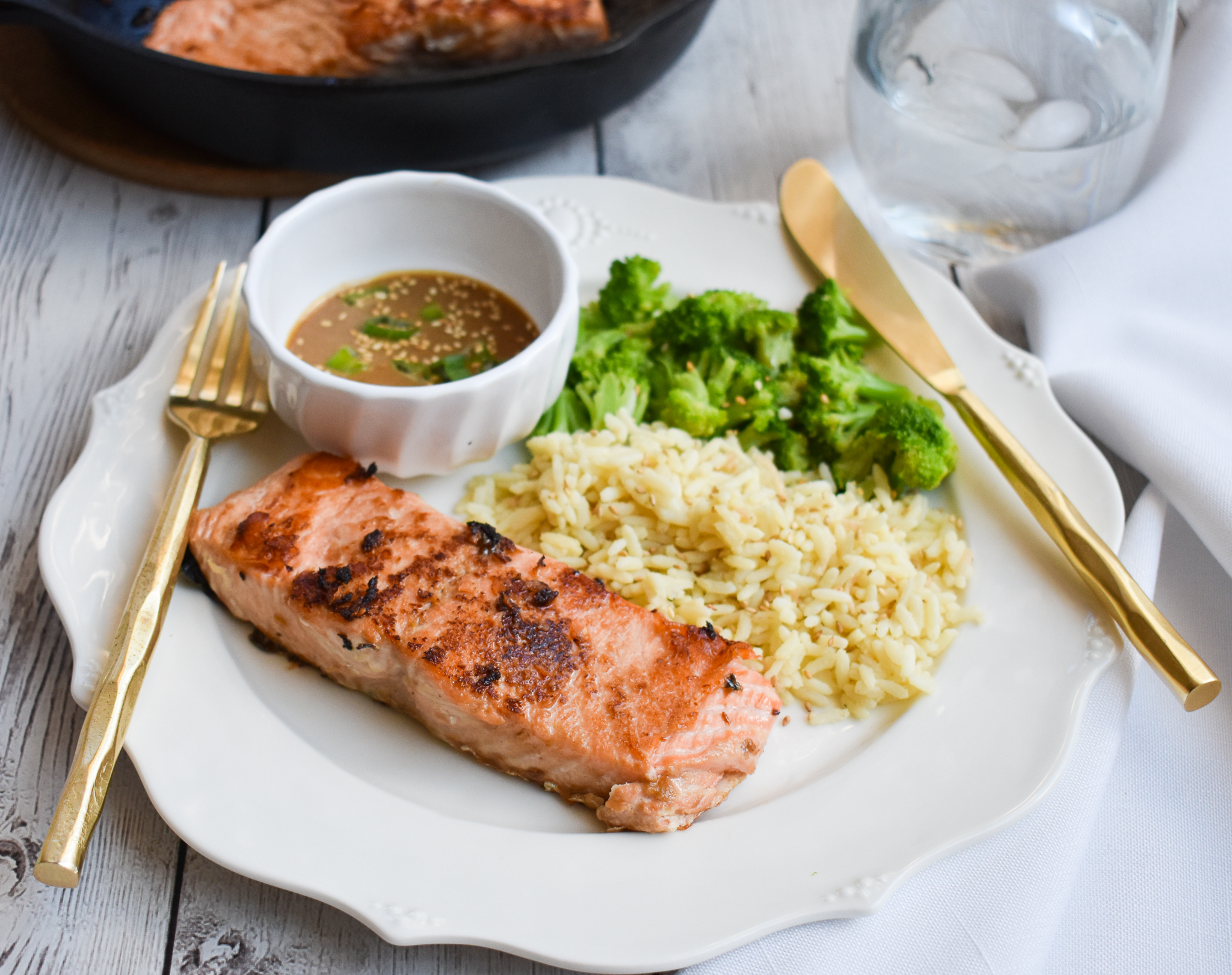
Low-FODMAP 30-Minute Tahini Ginger Salmon
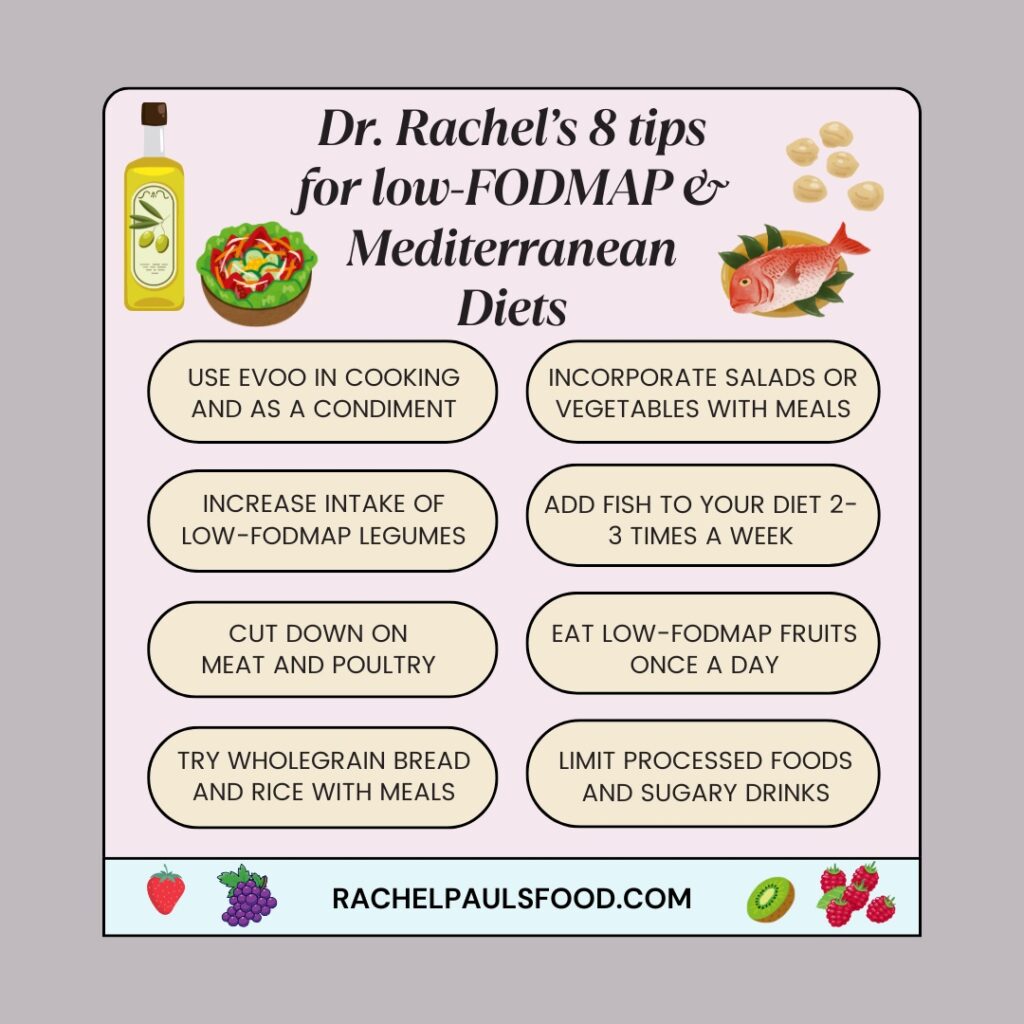
Dr. Rachel’s 8 Tips and Tricks to Encourage Mediterannean Diet (Low-FODMAP) Eating:
- Use extra virgin olive oil as your main fat source for cooking, as a dip for low-FODMAP breads, or in baking
- Try to incorporate a salad with each meal or add vegetables as a side dish (or both!)
- Increase your intake of legumes (try canned and drained lentils or chickpeas with your salad, or mix them into a brown rice dish)
- Make fish a part of your diet two or more times weekly (best are ‘fatty’ choices like salmon or sardines)
- Cut back on red meat, pork and poultry
- Eat fresh, low FODMAP fruit once a day (great for a sweet snack after meals or midday)
- Include low FODMAP, wholegrain breads and cereals with meals (ex: brown rice, oats, quinoa)
- Cut back on sugary drinks and snacks, limit packaged foods
Consider the Following for Improved Well-Being:
- Incorporate some exercise into your daily, or weekly regimen (walks, swimming, cycling)
- Avoid smoking, vaping, or using recreational drugs
- Cook at home when possible
- Select fresh produce and local fare
- Take time to enjoy your foods, be MINDFUL while eating
- Savor the bites, turn off your screen, and put away your phone!
- Try to enjoy your meals with other members of your family or friends
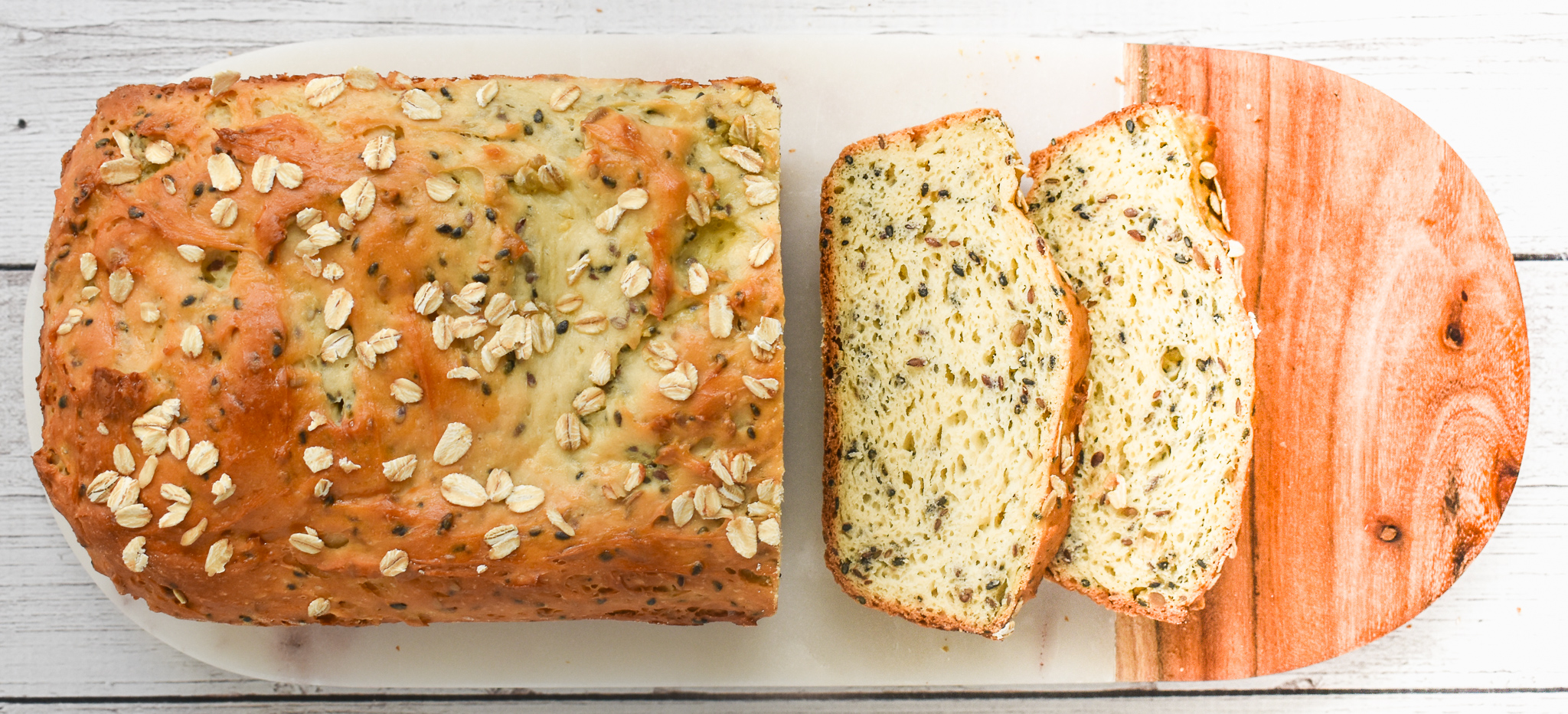
Delicious Low-FODMAP Multigrain Sandwich Bread
Here are some of my low-FODMAP, Mediterranean-friendly recipes for you to try:
- 30-Minute Mediterranean Chicken with Tomatoes & Olives; Low-FODMAP & Gluten-free
- Low-FODMAP Broiled Seasoned Fish Fillets
- Gut-Friendly Low-FODMAP Mediterranean Tuna Salad with Olives
- Low-FODMAP Foil Baked Lemon Salmon with Dill
- Low-FODMAP 30-Minute Tahini Ginger Salmon
- Low-FODMAP One-Pan Chili & Lime Tilapia
- Low-FODMAP Tomato Dill Salad with Lemon Vinaigrette
- Low-FODMAP Middle Eastern Chickpea Salad
- Low-FODMAP Hummus
- Low-FODMAP Slow-Cooker Meatless Chili with Quinoa
- Low-FODMAP Pumpkin and Sweet Potato Soup
- Low-FODMAP Sesame Glazed Tofu
- Low-FODMAP Rice Quinoa Medley
- Dr. Rachel’s Best Low-FODMAP Marinara
- Low-FODMAP Seared Scallops with Cherry Tomatoes
- Low-FODMAP Sweet and Spicy Grilled Shrimp
- Low-FODMAP Blackened Mahi Mahi
- Low-FODMAP Crunchy Thai Peanut Salad
- Low-FODMAP Superfood Salad with Kale
- Low-FODMAP Grilled Romaine (omit the bacon)
- Low-FODMAP Balsamic Grilled Vegetables
- Low-FODMAP Sheet Pan Roasted Broccoli
- Everyone’s Favorite Low-FODMAP Strawberry Salad with Low-FODMAP Poppyseed Dressing
- Delicious Low-FODMAP Multigrain Bread
- Mediterranean-Inspired 30-Minute Walnut Crusted Fish Fillets; Low-FODMAP & Gluten-free
Looking for other low-FODMAP diet tips? Check out these great posts:
- Dr. Rachel’s Top 11 Tips & Tricks for the Low-FODMAP Diet that No One Ever Tells You
- Dr. Rachel’s Top 7 Reasons the Low-FODMAP Diet Fails and How to Fix Them
- Low-FODMAP Grocery Shopping List
- Dr. Rachel’s Low-FODMAP Diet Five Day Meal Plan, Recipes and More
- Low-FODMAP Fast Food Restaurant Options; Because Low Doesn’t Mean No
- Tips for the Low-FODMAP Vegan, Vegan Food Lists and Low-FODMAP Vegetable Stock Recipe
- Low-FODMAP Free FODMAP Guide PDF
- Dr. Rachel’s Guide to the Low-FODMAP and Keto Diets; 5-Day Meal Plan, Recipes & More
For other amazing ideas, see over 500 FREE low-FODMAP recipes on the blog. IBS and gut friendly!
Be healthy and happy,
Rachel Pauls, MD


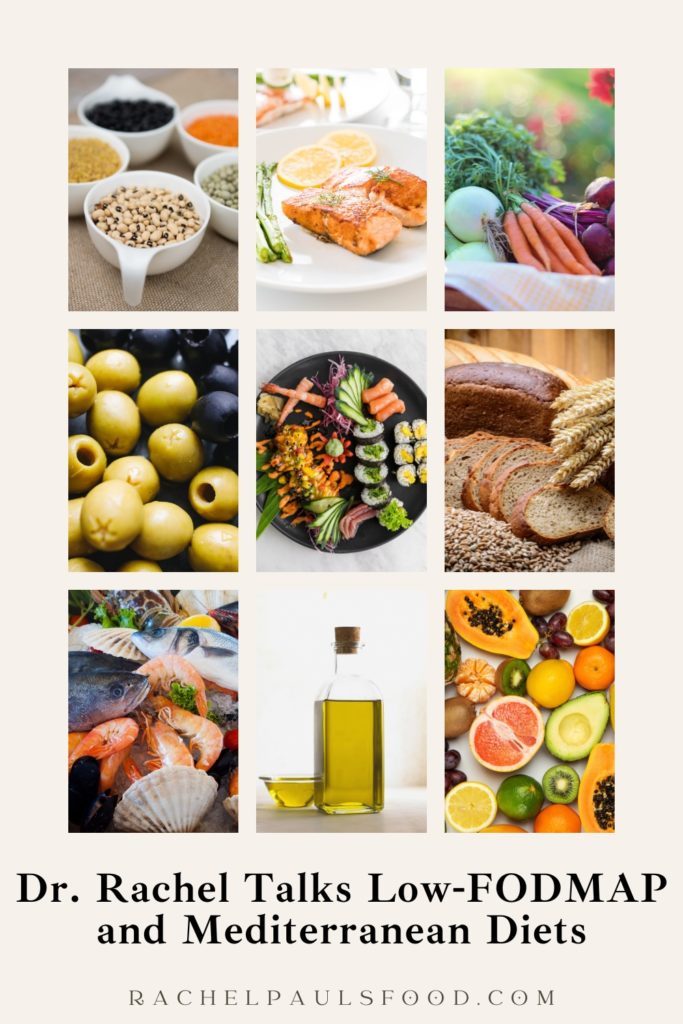


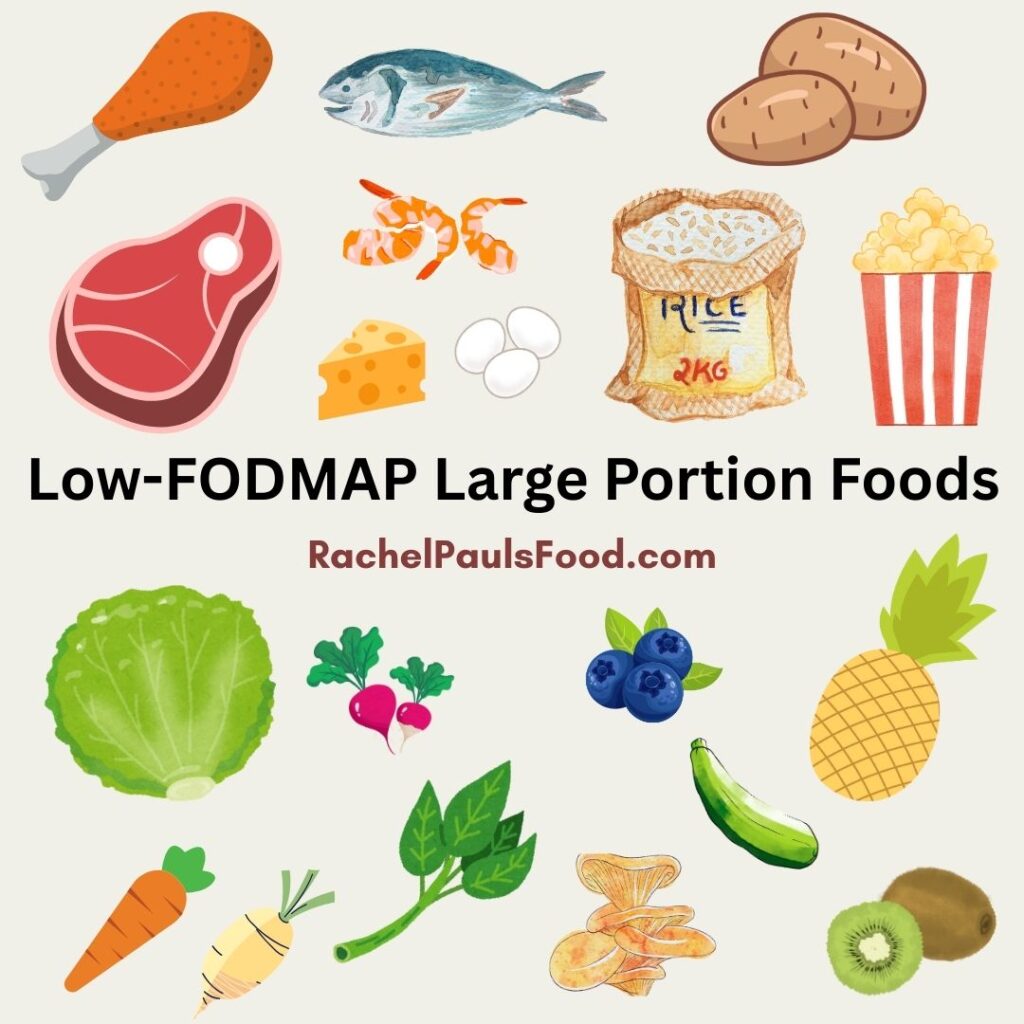
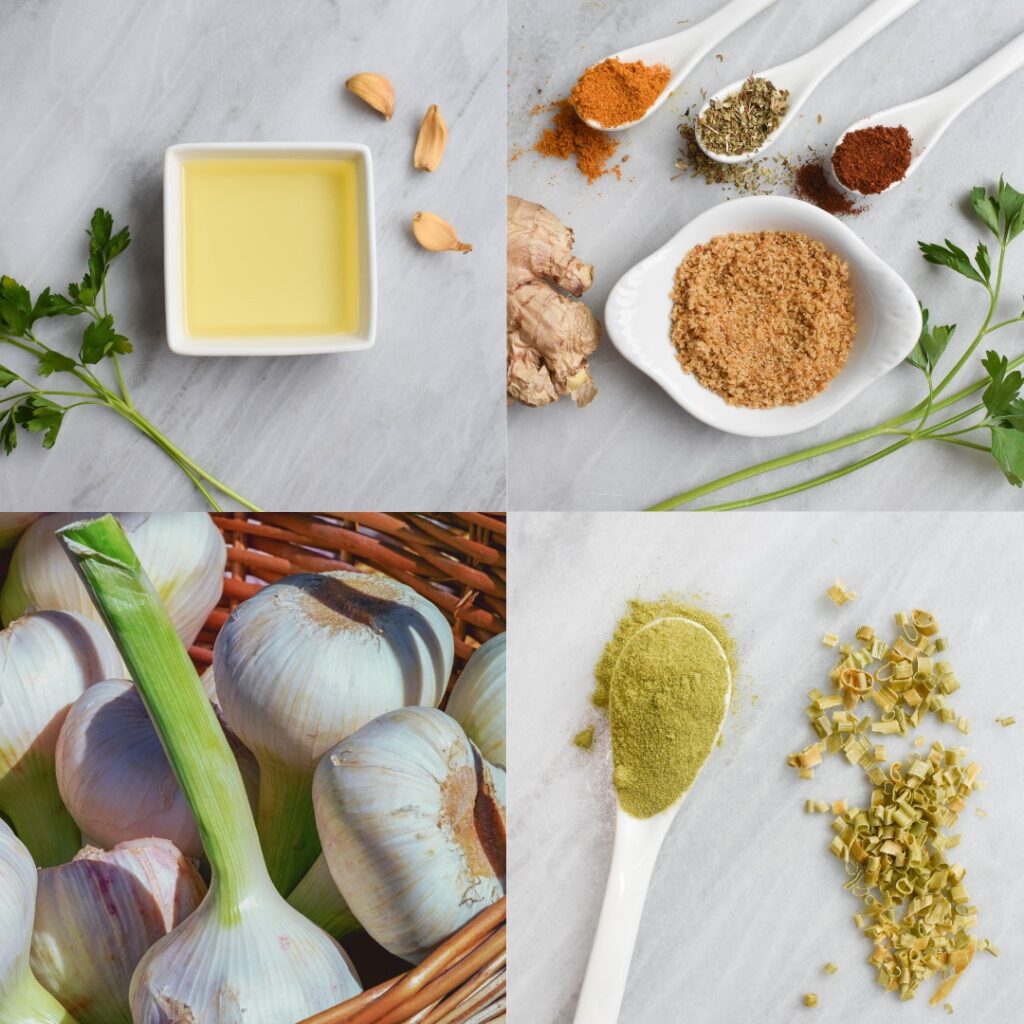
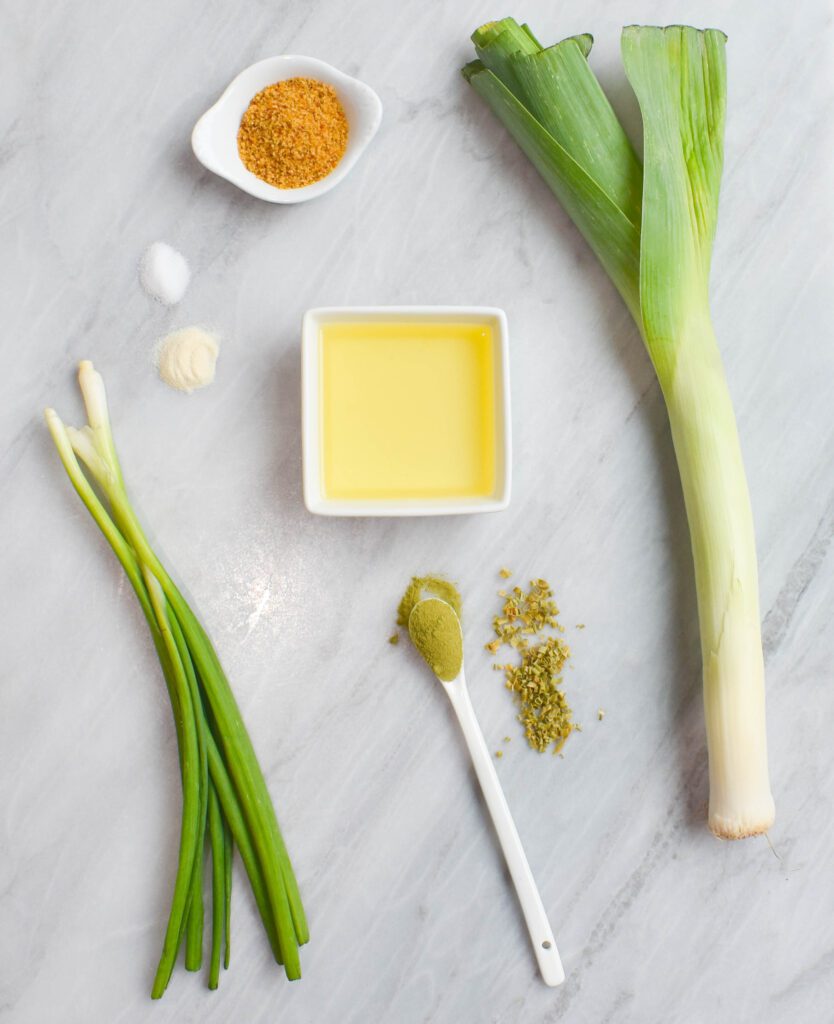
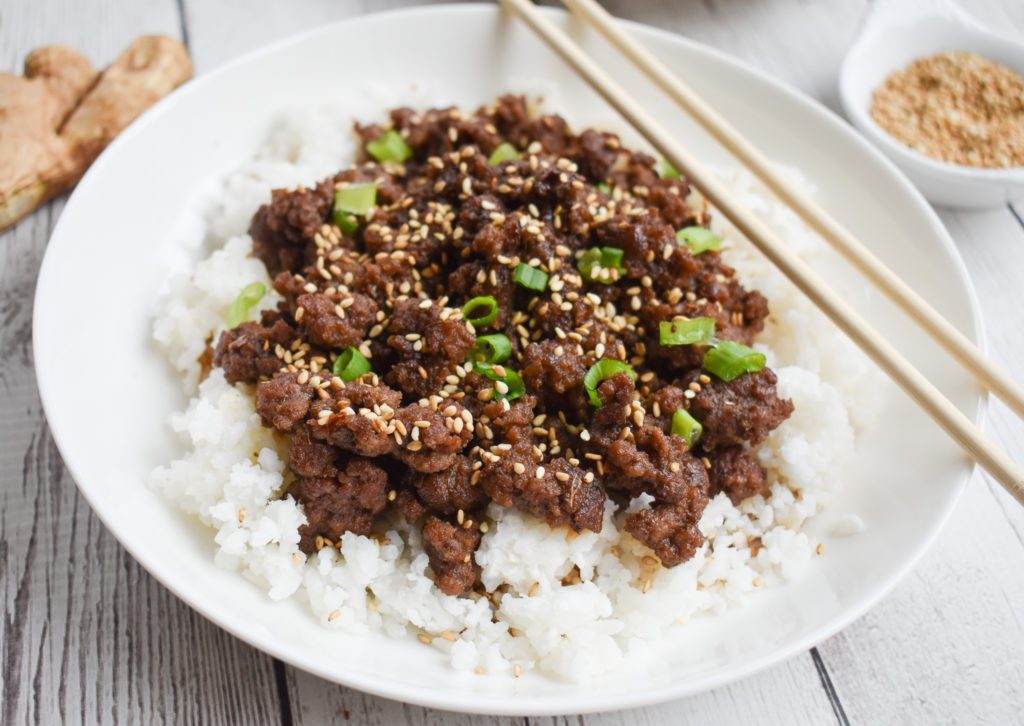

4 Responses
I’ve been using your online recipes for a couple of years now and purchased a cookbook, too! Yours is my favorite low-FODMAP resource on the internet. I was researching how to do a low FODMAP Mediterranean diet, and of course, you came through! I’m bookmarking this page, and I’ll be trying a bunch of the recipes on this list this summer! Thanks!
Hi Katie,
You are so sweet! Your comment made my day. Thank you so much, and I hope to hear from you again,
Best,
Rachel
Most comprehensive advice on IBS Mediterranean diet
Dr. Paul’s advice with many recipe options is the best and most comprehensive advice I have found on how to combine the two diets. Thank you so much Dr. Paul for sharing it.
Hi Carla,
Thank you so much for your kind words! I so appreciate your comments and time to make them.
Hope to hear from you again,
Warmly,
Rachel